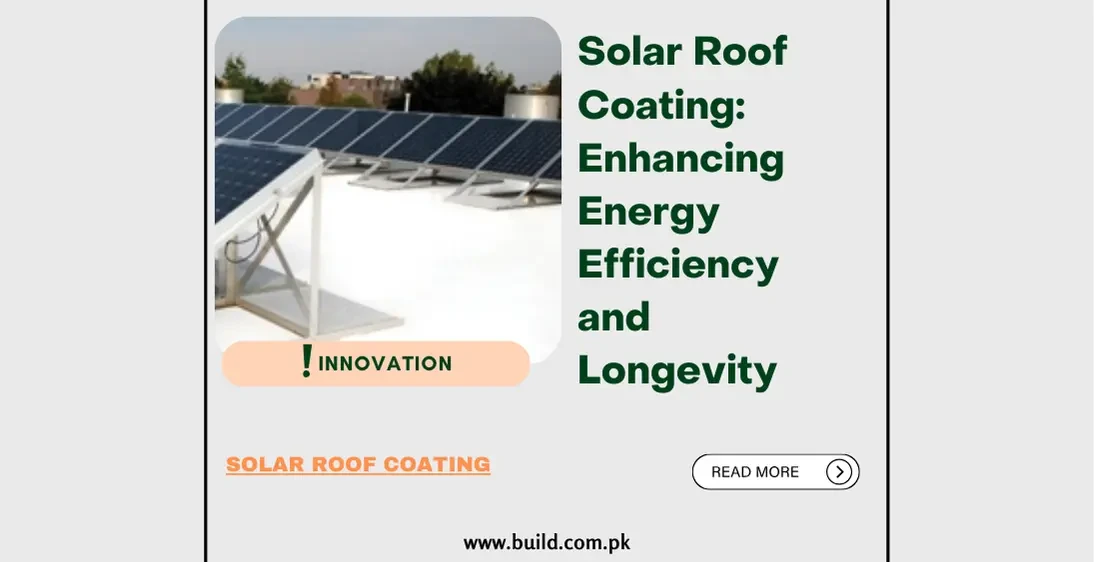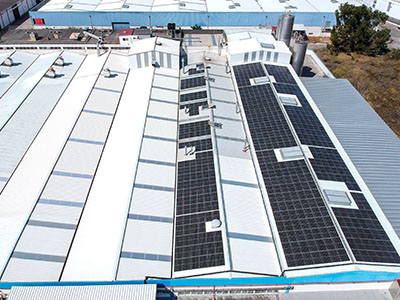Solar Roof Coating: Enhancing Energy Efficiency and Longevity

Introduction:
Solar roof coatings are an
innovative solution that combines the benefits of traditional roofing with
energy efficiency enhancements. By applying these coatings, homeowners and
businesses can reduce energy consumption, increase the lifespan of their roofs,
and contribute to environmental sustainability. This comprehensive guide will
explore what solar roof coatings are, their benefits, types, application
process, and maintenance tips.
Understanding Solar Roof Coating
What is Solar Roof Coating?
Solar
roof coatings are specialized materials applied to roof surfaces to improve
energy efficiency and reflectivity. These coatings typically contain reflective
particles and insulating compounds that help reduce heat absorption and enhance
the roof's ability to withstand environmental stresses. The goal is to decrease
the building's overall energy consumption by maintaining cooler indoor
temperatures.
How
Solar Roof Coatings Work:
These
coatings work by reflecting a significant portion of the sun's rays away from
the roof surface. This reduces the amount of heat absorbed by the building,
leading to lower indoor temperatures and less reliance on air conditioning
systems. Additionally, some coatings provide a waterproof barrier, protecting
the roof from moisture damage.

Benefits of Solar Roof Coating
Energy Efficiency:
One
of the primary benefits of solar roof coatings is improved energy efficiency.
By reflecting sunlight, these coatings can reduce cooling costs by up to
20-70%, depending on the climate and roof type. This leads to significant
savings on energy bills, especially during hot summer months.
Extended Roof Lifespan:
Solar
roof coatings protect the roof from UV radiation, thermal cycling, and
moisture, which can cause degradation over time. By mitigating these factors,
the coatings help extend the lifespan of the roof, reducing the need for
frequent repairs or replacements.
Environmental Impact:
By
reducing energy consumption, solar roof coatings help lower greenhouse gas
emissions associated with electricity production. This contributes to
environmental sustainability and helps combat climate change. Additionally,
many coatings are made from eco-friendly materials, further enhancing their
green credentials.
Improved Indoor Comfort:
Solar
roof coatings help maintain more stable indoor temperatures by reducing heat
gain. This creates a more comfortable living or working environment, especially
in regions with extreme temperatures.
Cost-Effective Solution:
Compared
to other energy-efficient upgrades, solar roof coatings are relatively
inexpensive and easy to apply. They offer a high return on investment through
energy savings and reduced maintenance costs.
Types of Solar Roof Coatings
Reflective Coatings:
Reflective
coatings are designed to reflect a large portion of the sun's rays. They
typically contain white or light-colored pigments that enhance their reflective
properties. These coatings are ideal for flat or low-slope roofs commonly found
in commercial buildings.
Elastomeric Coatings:
Elastomeric
coatings are flexible and can expand and contract with the roof's movements.
They provide excellent waterproofing and UV protection, making them suitable
for various roofing materials, including metal, concrete, and asphalt shingles.
Ceramic-Based Coatings:
Ceramic-based
coatings incorporate ceramic particles that offer superior reflectivity and
insulation. They are known for their durability and resistance to harsh weather
conditions. These coatings are suitable for both residential and commercial
applications.
Polyurethane Coatings:
Polyurethane
coatings are highly durable and provide excellent protection against moisture,
UV rays, and chemical exposure. They are commonly used on flat roofs and can be
applied in a single or multi-layer system for enhanced performance.
Silicone Coatings:
Silicone
coatings are highly resistant to weathering and UV radiation. They provide a
seamless, waterproof barrier that protects the roof from leaks and ponding
water. Silicone coatings are ideal for areas with heavy rainfall or extreme
temperatures.
Application Process of Solar Roof Coating
Preparation:
Conduct
a thorough inspection of the roof to identify any existing damage or areas that
need repair. Address any issues before applying the coating to ensure optimal performance.Clean
the roof surface to remove dirt, debris, and any loose material. A clean
surface ensures better adhesion of the coating.Apply a primer if recommended by
the coating manufacturer. Priming helps enhance the adhesion and longevity of
the coating.
Application:
Prepare
the coating mixture according to the manufacturer's instructions. Ensure
consistency for even application.Apply the coating using a brush, roller, or
spray equipment, depending on the roof type and coating material. Follow the
manufacturer's guidelines for thickness and coverage.Some coatings may require
multiple layers for optimal performance. Allow each layer to dry thoroughly
before applying the next one.
Curing:
Allow
the coating to dry and cure according to the manufacturer's recommendations.
This may take several hours to a few days, depending on the product and weather
conditions. After curing, conduct a final inspection to ensure even coverage
and proper adhesion. Address any areas that may need touch-ups.
Maintenance Tips for Solar Roof Coatings
Regular
Inspections: Periodically inspect the roof for signs of damage, wear, or
deterioration. Promptly address any issues to maintain the coating's
effectiveness.
Cleaning:
Keep the roof clean by removing debris, leaves, and dirt. Use a gentle cleaning
solution and avoid harsh chemicals that could damage the coating.
Touch-Ups:
Over time, the coating may experience minor wear and tear. Perform touch-ups as
needed to maintain its protective and reflective properties.
Professional
Maintenance: Consider professional maintenance services for more thorough
inspections and repairs. Professionals can identify potential issues that may
not be visible to the untrained eye.
Conclusion:
Solar
roof coatings offer a cost-effective and environmentally friendly solution to
enhance energy efficiency, protect your roof, and improve indoor comfort. With
various types of coatings available, homeowners and businesses can choose the
best option to suit their specific needs and climate conditions. By following
proper application and maintenance practices, you can maximize the benefits of
solar roof coatings and enjoy long-term savings and sustainability.
Investing in solar roof coatings is a smart choice for those looking to reduce energy costs, extend the lifespan of their roof, and contribute to a greener future. Whether you have a residential or commercial property, solar roof coatings provide a practical and efficient way to enhance your building's performance and curb appeal.









